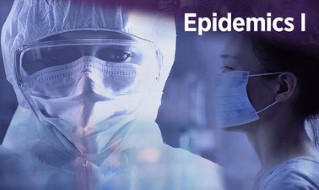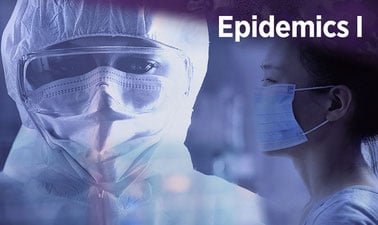Epidemics I
Learn about the origins, emergence, and control of infectious diseases in this comprehensive course. Explore epidemics like Ebola and Zika, and understand the factors leading to disease emergence. Discover how to prepare for future outbreaks and allocate resources effectively. Gain insights into the ecology and evolution of infectious diseases and the use of phylogenetic trees in studying epidemics. This course also covers topics like antimicrobial resistance, vaccines, and global variations in influenza risk. Join now to enhance your understanding of the ongoing battle between humans and microbes.
What you will learn
- Epidemics: Past, Present and Future
- Discussion on Ebola and Zika Outbreak, and Supplementary Module on Next Generation Informatics for Global Health
- Ecology, Evolution and Emergence of Infectious Diseases
- Medical Detective: Bug Hunting in Epidemics
- ????????????
- ????????????????????????????
- ????????????
- ??????????????
- Historic transitions and emergence of epidemic infections
- Factors leading to infectious disease emergence and re-emergence
- Regions with higher risk and estimated economic costs of emerging infectious disease
- Ecology, evolution and emergence of infectious diseases such as Zika, Ebola, H5N1, H7N9, H1N1 and Swine Influenza
- Discovery, proof of association and causation, and control (case review on SARS)
- ????????????
- ??????????????
- ???????????????????
- ???????H5N1?H7N9?H1N1?????????????????
- ??????????????????SARS?????
- What is epidemic?
- How epidemics of infectious disease arise from historic transitions?
- Why novel emerging infectious diseases continue to arise?
- Emerging infectious disease, re-emerging infectious disease and zoonosis
- Factors leading to infectious disease emergence and re-emergence (microbial factors, climate and weather, changes in ecosystem and land use, human demographics, migrations and behaviour, international travel and commerce, technology, industry and intensive animal husbandry, breakdown in public health due to poverty, wars, natural disasters, and bioterrorism)
- Regions with higher risk of future emerging infectious disease and estimated economic costs of emerging infectious disease
- How to prepare for the next epidemic?
- How to allocate our resources among our fights against different pathogens?
- How should we channel our resources?
- Vaccines
- Antimicrobial resistance
- Supplementary module: towards digital pathogen surveillance: a very bumpy, winding road
- Ecology of infectious diseases
- Emerging infectious diseases at the human-animal interface
- What is phylogenetic tree?
- How to use phylogenetic trees to study an epidemic of infectious disease?
- Emergence of highly pathogenic H5N1 Avian Influenza virus in Asia
- Emergence of the H7N9 Influenza A virus in china
- Swine Influenza and the 2009 pandemic H1N1
- Ebola in the wider context
- Border controls
- Is stopping bushmeat the answer?
- How should we use experimental treatments and vaccines?
- Should we centralise care and enforce lockdowns?
- Will Ebola become airborne?
- Will Ebola be become a huge human pandemic like HIV?
- Supplementary module: global variation in risk of influenza virus emergence
- Discovery of a novel microbe: first suspicion
- Finding the cause of interstitial pneumonia
- The identification of the novel virus associated with this infectious pneumonia
- Proof of association & causation: is SARS coronavirus really the cause of SARS?
- Control of emerging infections depends on: control at the source
- Alert: coronavirus as the cause of emerging infectious diseases!
- Supplementary module: using genetic data at multiple scales to understand constraints on viral evolution
Program Overview
?If history is our guide, we can assume that the battle between the intellect and will of the human species and the extraordinary adaptability of microbes will be never-ending.? (1)
Despite all the remarkable technological breakthroughs that we have made over the past few decades, the threat from infectious diseases has significantly accelerated. In this course, we will learn why this is the case by looking at the fundamental scientific principles underlying epidemics and the public health actions behind their prevention and control in the 21st century.
This is the first (origins of novel pathogens) of the four courses, covers these topics:
Epidemics: Past, Present and Future
Discussion on Ebola and Zika Outbreak, and Supplementary Module on Next Generation Informatics for Global Health
Ecology, Evolution and Emergence of Infectious Diseases
Medical Detective: Bug Hunting in Epidemics
??????????????????????????????????????????????????(1)
???????????????????????????????????????????????????????????????????????????????????????????
??????????????????????
????????????
????????????????????????????
????????????
??????????????
—————————————————————————————————————————————
(1) Fauci AS, Touchette NA, Folkers GK. Emerging Infectious Diseases: a 10-Year Perspective from the National Institute of Allergy and Infectious Diseases. Emerg Infect Dis 2005 Apr; 11(4):519-25.







There are no reviews yet.